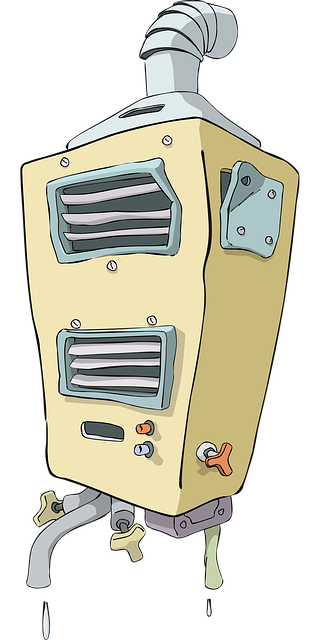Before replacing your water heater podcast, assess your household's water usage patterns, tank capacity needs, and energy efficiency preferences. Look for signs like age, performance issues, or temperature fluctuations indicating a potential system failure. Track hot water consumption, identify long wait times, and consider energy bills to determine if a new, more reliable water heater is necessary.
Considering a new water heater? It’s crucial to understand your needs before making a purchase. This guide will walk you through assessing your hot water usage patterns, understanding energy efficiency, and recognizing signs it’s time for an upgrade—like excessive energy bills or frequent temperature fluctuations. We’ll also explore different types of heaters and essential features to ensure the best fit for your home, helping you navigate this decision with confidence.
- Assessing Your Water Heating Needs
- – Understanding your hot water usage patterns
- – Factors influencing water heater capacity
Assessing Your Water Heating Needs

Before considering a replacement water heater, it’s crucial to assess your current needs and identify signs that indicate a new one is necessary. Factors like household size, water usage, and desired water temperature play a significant role in determining the appropriate tank capacity and energy efficiency for your water heater. Start by evaluating your daily routines; if you have a large family or multiple occupants, increased hot water demand may suggest the need for a larger tank or potentially a more advanced heating system.
Additionally, keeping an eye out for certain signs can help you know when it’s time to replace your water heater. Age is a significant indicator; as heaters age, their efficiency and safety features may decline. Look out for frequent temperature fluctuations in your hot water, loud noises coming from the tank, or persistent leaks. If your current system requires frequent repairs or shows reduced performance, these could be signs that it’s reaching the end of its lifespan, signaling the need for a new, more reliable water heater.
– Understanding your hot water usage patterns

Understanding your hot water usage patterns is a crucial step before replacing your water heater. Pay attention to signs like inconsistent hot water supply, long wait times for water to heat up, or frequent temperature fluctuations. These could indicate that your current system is struggling to keep up with your demands. Keep track of your daily routines—how many people live in your household, the number of baths and showers taken, and any high-demand appliances like dishwashers or washing machines. This information will help you determine the appropriate tank size and energy efficiency level for your new water heater.
By analyzing your hot water usage patterns, you can identify if a new water heater is indeed necessary. If you notice frequent signs of wear and tear, such as loud rumbling sounds, excessive sediment buildup at the bottom of the tank, or persistent leaks, it might be time to consider a replacement. Moreover, energy bills that consistently rise despite efficient practices could point to an outdated system that needs upgrading.
– Factors influencing water heater capacity

When considering a new water heater, understanding your specific needs is crucial. Several factors determine the capacity or size of a water heater required for your household. Firstly, the number of occupants and their daily hot water usage plays a significant role. Large families or households with high hot water demand will need a larger tank capacity to meet their requirements. Additionally, the temperature setting of your water heater impacts energy efficiency; higher temperatures require more energy to maintain, increasing operational costs.
Other considerations include the type of heating source (electric, gas, or oil), insulation quality, and the climate you live in. Older water heaters may exhibit signs of needing replacement, such as increased energy bills, inconsistent hot water supply, or frequent repairs. These indicators suggest that a new, more efficient water heater could save you money and ensure a reliable hot water supply for your home.
When considering a new water heater, understanding your specific needs and identifying the signs you need a replacement are crucial steps. By assessing your hot water usage patterns and factoring in capacity-influencing elements, you can make an informed decision. Remember, knowing when to replace your water heater ensures you don’t waste energy or money on a unit that doesn’t meet your requirements. So, take the time to research and choose wisely to avoid the hassle of frequent repairs or inefficient heating.
